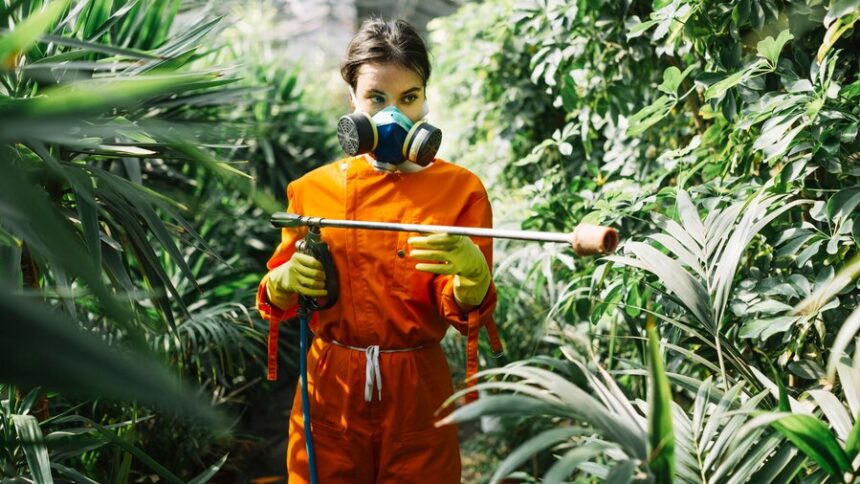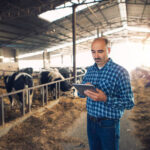Pest and weed management in organic farming in South Africa involves employing sustainable and environmentally friendly practices to control pests and weeds without the use of synthetic chemicals. Here are some strategies that can help you navigate pest and weed management in organic farming:
- Crop Rotation: Rotate crops to disrupt pest and weed life cycles. Different crops attract different pests and weeds, so rotating crops helps reduce their populations naturally.
- Polyculture: Planting a diverse range of crops in close proximity can help deter pests and weeds. Some plants have natural pest-repellent properties, and intercropping them with susceptible crops can provide a level of protection.
- Biological Control: Encourage natural predators and beneficial organisms that prey on pests. For example, ladybugs, predatory wasps, and birds can help control pest populations. Introduce these beneficial organisms to your farm and create habitats that support their populations.
- Mechanical Weed Control: Use physical methods to control weeds, such as hand-pulling, hoeing, or mowing. This approach requires manual labor, but it avoids the use of herbicides.
- Mulching: Apply organic mulch, such as straw or wood chips, around plants to suppress weed growth. Mulch also helps retain moisture in the soil and adds organic matter.
- Weed Suppression through Cover Crops: Plant cover crops in between main crops to suppress weed growth. Cover crops compete with weeds for resources, such as sunlight and nutrients, reducing weed populations.
- Integrated Pest Management (IPM): Implement an IPM approach by monitoring pest populations and using multiple strategies to control them. This approach includes preventive measures, cultural practices, and targeted use of organic pesticides if necessary.
- Trap Cropping: Plant specific crops that attract pests away from the main crops. This method can help protect valuable crops by luring pests to a sacrificial crop.
- Organic Pesticides: In organic farming, the use of approved organic pesticides derived from natural sources may be necessary as a last resort. However, these should be used judiciously and only when other methods have failed.
- Soil Health: Maintain healthy soil conditions through organic practices like composting, crop rotation, and the use of cover crops. Healthy soils support robust plant growth, making them more resilient to pests and weeds.
Remember that successful pest and weed management in organic farming requires a holistic approach and continuous monitoring. Adapt your strategies based on the specific pests and weeds you encounter in your region and consult with local organic farming organizations and experts for further guidance tailored to South African conditions.







